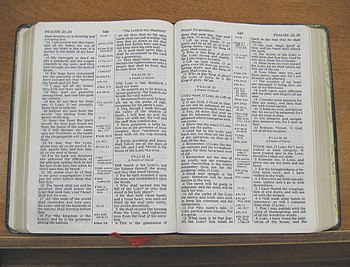| A cropped version of Antonio Ciseri's depiction of Pontius Pilate presenting a scourged Christ to the people. See: Eccehomo1.jpg for full version. (Photo credit: Wikipedia) |
I will tell of your name to my brothers;
in the midst of the congregation I will praise you:
You who fear the Lord, praise him!
All you offspring of Jacob, glorify him,
and stand in awe of him, all you offspring of Israel!
Psalm 22:22-23
English Standard Version (ESV)
Every day we are faced with questions. We decide what we will wear, what we will eat, where we will go or what we will do. Most of these are easy, things done with barely a passing thought. They involve decisions nevertheless and whatever we decide is rarely ever of any consequence.
Then there are those bigger life decisions. Should I take this job? Should I make my life with this person? Should we have this child? These types or decisions call for more thought. They are decisions that could decide the quality of our lives and state of our affairs.
But how often are we faced with those questions that can affect us into eternity? Pontius Pilate asked the mobs about what he should do with Jesus Christ. Their answer was to reject Jesus as Messiah and instead put him to death.
Each of us will have to face the question of what to do with this "Jesus who is called Christ". Perhaps you have answered. Or maybe you are still undecided. The question must be answered eventually by each of us.
What is your answer?
This post was inspired by Oliver B. Greene's The Greatest Question. If you like good expository books about the Bible this one is an excellent choice. I believe it would be a helpful tool in witnessing to others.
Pilate said to them, “Then what shall I do with Jesus who is called Christ?” They all said, “Let him be crucified!”
Matthew 27:22
English Standard Version (ESV)
Every day we are faced with questions. We decide what we will wear, what we will eat, where we will go or what we will do. Most of these are easy, things done with barely a passing thought. They involve decisions nevertheless and whatever we decide is rarely ever of any consequence.
Then there are those bigger life decisions. Should I take this job? Should I make my life with this person? Should we have this child? These types or decisions call for more thought. They are decisions that could decide the quality of our lives and state of our affairs.
But how often are we faced with those questions that can affect us into eternity? Pontius Pilate asked the mobs about what he should do with Jesus Christ. Their answer was to reject Jesus as Messiah and instead put him to death.
Each of us will have to face the question of what to do with this "Jesus who is called Christ". Perhaps you have answered. Or maybe you are still undecided. The question must be answered eventually by each of us.
What is your answer?
This post was inspired by Oliver B. Greene's The Greatest Question. If you like good expository books about the Bible this one is an excellent choice. I believe it would be a helpful tool in witnessing to others.
Pilate said to them, “Then what shall I do with Jesus who is called Christ?” They all said, “Let him be crucified!”
Matthew 27:22
English Standard Version (ESV)
























